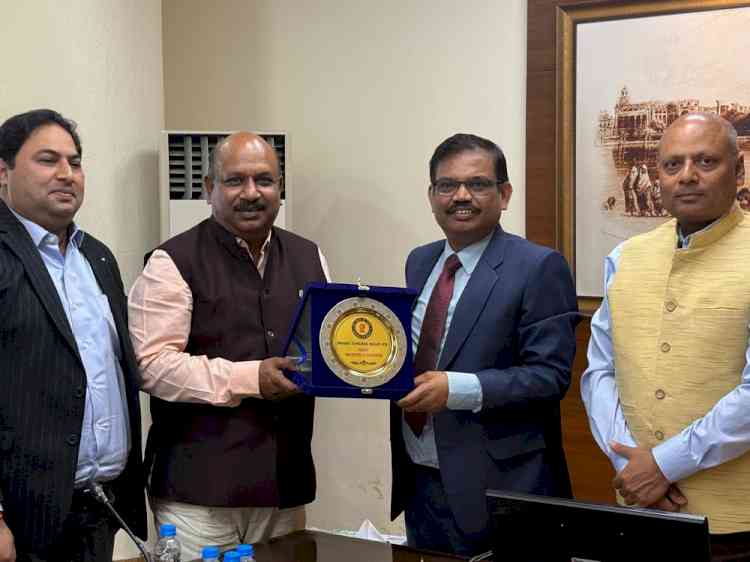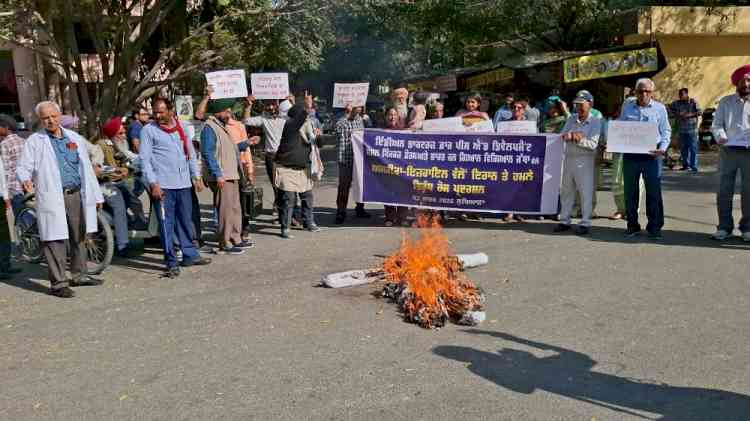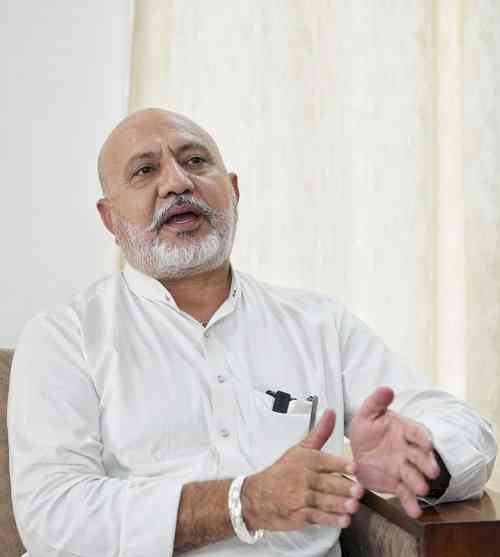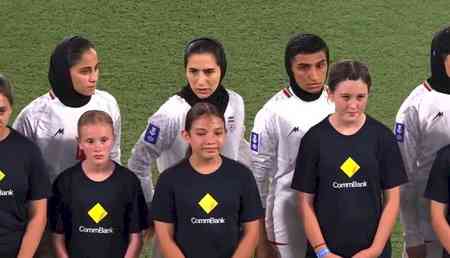BharatNet Scheme in Punjab: Punjab Becomes the First State in India to Bring Fast Internet to Every Village
Punjab has created history. Under the leadership of Chief Minister Bhagwant Singh Mann, the state has become the first in India to fully implement the revised BharatNet scheme. Chief Secretary K.A.P. Sinha received this award today from BSNL CGM Ajay Kumar Karara and said that this marks a new dawn for the 30 million people of Punjab. High-speed broadband internet has already reached 43 blocks of the state, and by the end of November, every village will be connected to Digital India.

Chandigarh, November 12, 2025: Punjab has created history. Under the leadership of Chief Minister Bhagwant Singh Mann, the state has become the first in India to fully implement the revised BharatNet scheme. Chief Secretary K.A.P. Sinha received this award today from BSNL CGM Ajay Kumar Karara and said that this marks a new dawn for the 30 million people of Punjab. High-speed broadband internet has already reached 43 blocks of the state, and by the end of November, every village will be connected to Digital India.
This is no small achievement. At a time when the entire nation talks about Digital India, Punjab has proven that government schemes don’t just remain on paper—they can be implemented effectively on the ground. Over 1,000 kilometers of fiber-optic cables have already been laid—more than ten times the distance between Ludhiana and Delhi. The campaign to connect every village, every panchayat, and every household to the internet reflects Punjab’s strong determination.
The greatest impact of this project will be felt by Punjab’s farmers. Nearly 60% of the state’s population depends on agriculture. Now, farmers will be able to check market prices from home, access accurate weather updates, and directly connect with buyers. Information and applications for schemes like MSP and PM-KISAN will now be available right on their mobile phones. Middlemen will be eliminated, and farmers’ incomes will rise directly.
For Punjab’s youth, this project opens a new path to employment. Today, millions of jobs across the country are available online—in fields like digital marketing, content writing, graphic design, and data entry. But due to lack of internet access, many young people in villages were left out of these opportunities. Now, whether it’s Jalandhar or Fazilka, Amritsar or Muktsar, young people everywhere will have equal opportunities. The compulsion to move abroad will finally end.
In the field of education, this scheme will be revolutionary. Around 3 million children studying in Punjab’s government schools will now have access to the same quality of education as students in expensive urban schools. Online classes, lectures by IIT professors on YouTube, and free courses—all of it will now be accessible to children in villages. This will help bridge the gap between the rich and the poor.
Healthcare services will also see a major transformation. In remote areas of Punjab where doctors are not available, treatment will become possible through telemedicine. People will be able to consult specialist doctors from PGI Chandigarh or major hospitals in Amritsar via video calls. Timely treatment will save lives—making this scheme truly life-changing.
For women, this initiative will become a powerful tool of empowerment. Running businesses from home, taking online courses, accessing banking services, and availing government schemes—all will now be within reach. Punjab’s women will become financially self-reliant, marking the beginning of a major social transformation.
Chief Secretary K.A.P. Sinha described this achievement as a collective effort of the people of Punjab. He said that this is not just about technology—it is about giving wings to Punjab’s dreams. The fact that Wi-Fi has reached Ramkalwan, a border village in Pathankot, proves how strong the government’s commitment is. This award belongs to every Punjabi who dreams of a progressive and modern Punjab.



 City Air News
City Air News 










